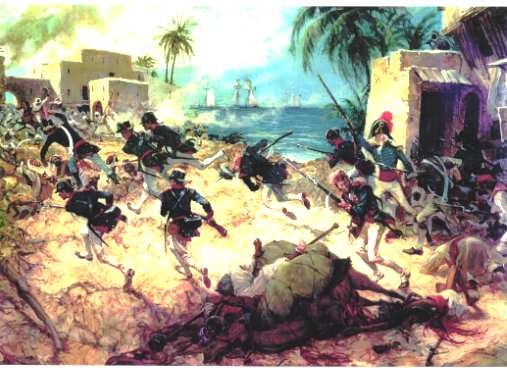Follow the links below, and you can watch Steven speak in depth about tribalism and his thoughts about the war today. Very interesting stuff, and especially the comparisons of Alexander the Great and his war in Afghanistan, compared to today’s war there. His books are amazing, and I know I am highlighting his Video Blog, but really this about the author himself. If you notice in the videos, he is an outstanding speaker and story teller, which are key components for influencing others. Check it out and Semper Fi. –Matt
——————————————————————

Why I’m Doing This
By Steven Pressfield
June 8, 2009
June 8th I’m posting the first two of five video op-ed pieces on the subject of Afghanistan, U.S. troop involvement, and the nature of the enemy. #3 will be posted on Wednesday, #4 on Friday. #5 will wrap it up next Monday.
Why am I doing this? Not for money. I’ve got no book coming out, no tour, nothing. I just want this information to get out there. We did these videos—I and a group of smart and dedicated young filmmakers—just as concerned citizens, the way one might write an op-ed piece and submit it to a newspaper.
What’s the thesis of the videos? That the enemy today in Afghanistan (and Pakistan and Iraq) is being mischaracterized as “militant Islamist,” “jihadist,” “terrorist,” etc. I don’t think that’s the defining characteristic. I think the single quality that most defines our foes is tribalism and the tribal mind-set.
What does that mean? It means that the qualities common to all tribes at all times and in all places—warrior pride, hostility to outsiders, fidelity to the group, the obligation of revenge, suppression of women, a code of honor rather than a system of laws, extreme conservatism, patience and capacity for hatred—are what characterize the enemy (as well as our potential friends) in Afghanistan and in Pashtunistan, the tribal areas along the Pakistan border.
Our young Marines and soldiers are in harm’s way now, and more will be deploying soon, in this strategically critical and very dangerous part of the globe. It’s imperative, in my view, that these men and women be armed with a full understanding of what they’re up against. I’ve spoken on this subject at West Point, Quantico, Camp Lejeune and Camp Pendleton and, though our young Marines and soldiers are getting some training in this area, my fear is that it’s not in-depth enough and that it’s not extending far enough down the food chain. Officers of course need a background in this subject, but our enlisted troopers on the ground—the much-talked-about “strategic corporals”–need it just as badly.
It is equally imperative, in my view, that our policymakers in Washington possess this historical and cultural grounding.
That’s why I’m posting these video op-ed pieces.
Tomorrow I’ll write about how this thesis evolved, what the sources are, and on what authority I “submit it for your approval.”
*****
Steven Pressfield is the author of Gates of Fire and four other historical novels set in the ancient world, including The Afghan Campaign. His most recent book is Killing Rommel, a WWII story. He is also the author of The Legend of Bagger Vance and The War of Art.
Mr. Pressfield is a graduate of Duke University and a former Marine. His books are in the curriculum at West Point, Annapolis and the Naval War College, as well as being on the Commandant’s Reading List for the Marine Corps. He lives in Los Angeles.
Steven Pressfield Video Blog Here.
